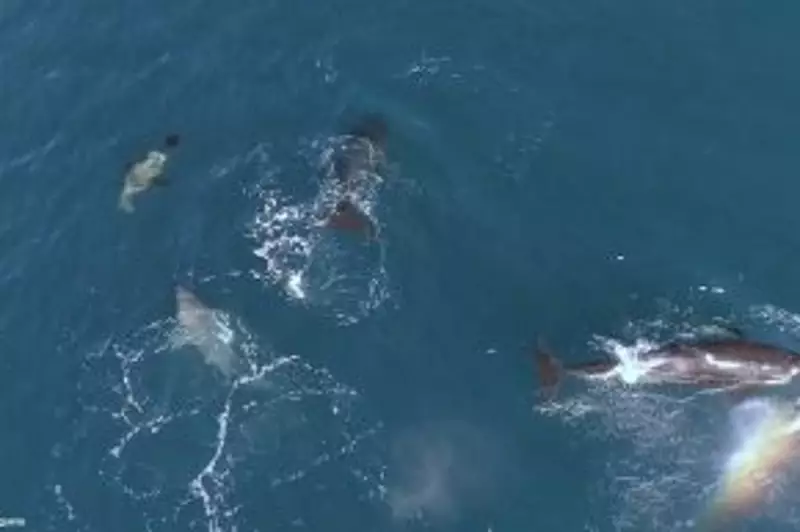
In a stunning display of marine predation that has left scientists astonished, a pair of killer whales has been systematically hunting and devouring great white sharks along South Africa's coastline. The sophisticated hunting partnership between these orcas represents one of the most dramatic predator-prey interactions ever documented in marine science.
The Unlikely Hunting Duo
Researchers have identified two specific orcas, nicknamed Port and Starboard for their uniquely bent dorsal fins, as the masterminds behind these coordinated attacks. What makes this phenomenon particularly remarkable is the precision with which these marine mammals target the sharks' nutrient-rich livers, surgically extracting them while leaving the rest of the carcass intact.
A Marine Nursery Turned Hunting Ground
The attacks have primarily occurred near Gansbaai, an area traditionally known as a great white shark nursery. Marine biologists have observed a significant exodus of great white sharks from their established territories, suggesting the orcas' hunting success is fundamentally altering the region's ecological balance.
Dr. Alison Towner, a leading white shark biologist who has studied these events, describes the situation as unprecedented. "We're witnessing a complete behavioural shift in the shark population," she explains. "Areas that were once shark strongholds are now being abandoned as these intelligent predators demonstrate their dominance."
Sophisticated Hunting Techniques Revealed
The orcas' methodology reveals astonishing intelligence and coordination:
- Surgical Precision: Targeting only the energy-rich liver while discarding the remainder
- Coordinated Attacks: Working in pairs to overwhelm much larger prey
- Learning Behaviour: Refining techniques over multiple successful hunts
- Territorial Impact: Causing permanent shifts in shark distribution patterns
Ecological Implications
This predator-prey dynamic represents more than just dramatic wildlife encounters—it signals potential long-term changes to the marine ecosystem. The displacement of great white sharks from their traditional habitats could create ripple effects throughout the food chain, affecting everything from fish populations to seabird behaviour.
Marine conservationists are closely monitoring the situation, recognising that these events provide rare insights into how top predators influence marine ecosystems. The ongoing research continues to reveal new dimensions of orca intelligence and their role as apex predators in our oceans.





